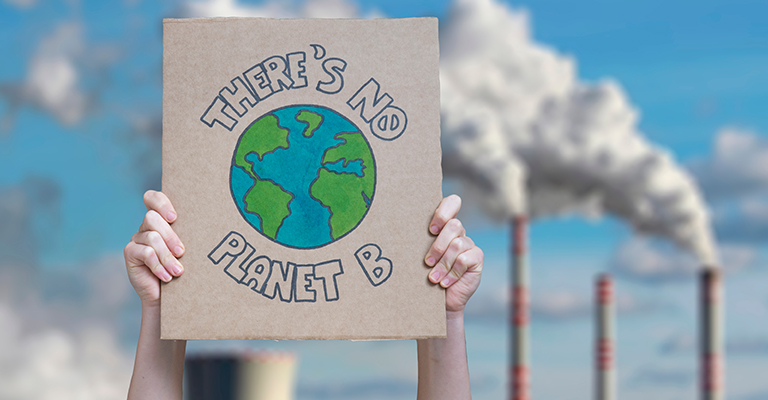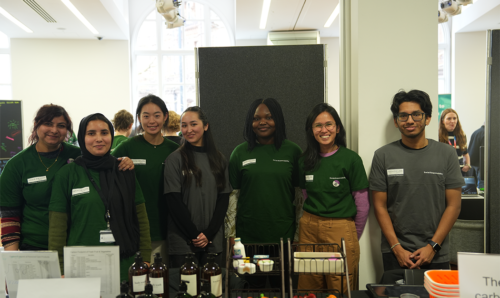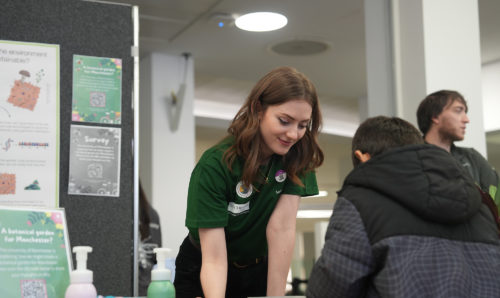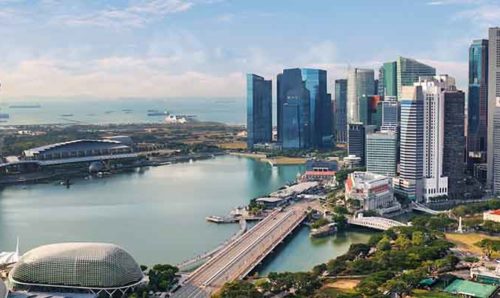Manchester Festival of Climate Action: Tackling the biggest questions
Our partners Research impact and institutes Social responsibility 9th November 2021
How to tackle climate change. It’s the question we’re all asking, and the one currently being discussed, debated and thrashed out at COP26.
Held in the lead-up to this momentous conference, The University of Manchester hosted a unique four-day forum aiming to address the biggest climate challenges. Each day was dedicated to one of the four COP26 goals: mitigation, adaptation, finance and collaboration.
The Manchester Festival of Climate Action proved a tremendous success – and vows to keep the conversation moving.

Offering insight; finding solutions
Featuring more than 60 Manchester academics and sustainability experts, the event included 27 sessions across the four days.
Free, online and open to all, it provided an arena to share insight and proffer innovative solutions. Speakers were recruited from around the world, and addressed the local, national and global challenges we face. Our Manchester experts were on hand to offer responses that could, ultimately, drive long-lasting change.
More than 1,750 people attended the live sessions, and over one-third (39%) were policymakers and industry decision-makers, drawn from the likes of HM Treasury, the British Embassy, the Department for Business, Energy and Industrial Strategy, the UK Atomic Energy Authority, the Environment Agency, Mastercard, PWC, and AstraZeneca.
Just under half (46%) were Manchester academics, staff and students, and a further 15% were UK and international academics.
Pressing challenges
Professor Colette Fagan, Vice-President for Research at The University of Manchester, noted the event saw “our world-leading community of experts answer the most pressing global challenges, so that we can help governments, businesses and communities drive the action needed to help future generations”.
And the global challenges discussed were certainly diverse. Claire Brown, a PhD researcher at Tyndall Manchester, for example, explored the future of construction, asking ‘what can cities do about decarbonising consumption?’
Professor Carly McLachlan, Director of Tyndall Manchester, focused on super low-carbon live music, asking ‘how can the UK live music sector play its part?’
She said: “It really would be much, much easier if leaders in organisations said ‘I am personally committed to transformation and I am going to create the conditions that mean everybody who works in this organisation needs to deliver against that’.
“One of the key challenges is getting that genuine leadership buy-in that opens up the opportunities and closes down the things you really shouldn’t be doing.”

New ways of thinking
For Professor David Johnson of the Department of Earth and Environmental Sciences, who looked at sustainable food systems and asked ‘what are the two sides to the story?’, “it’s about integrating policies and bringing in alternative ways of thinking to tackle the various issues, particularly drawing on what we know about the natural environment”.
Professor Mike Shaver, the new Director of the Sustainable Futures research platform, who leads the Sustainable Materials Innovation Hub, questioned why plastics can’t be used for good in his talk ‘how can we save the world one plastic fork at a time?’, stating: “Because people are demonising plastics, they’re not recognising the value of these materials to actually maintain a lower carbon footprint.”
Posing the question ‘how can nuclear energy contribute to realising net zero?’, Director of the Dalton Nuclear Institute Professor Francis Livens shared: “There needs to be another way of providing the enormous quantities of energy that the five-sixths of the world’s population who are the have-nots, can use to improve their quality and standard of life.
“And there are very few options if you want very large quantities of energy. For me, nuclear is part of that solution.”
Keeping the conversation moving
Further examples of the many and varied topics discussed include an investigation into the Earth’s geological and biological records, as it was asked ‘what can the past teach us about our future?’, and a deep dive into the potential benefits of nuclear fusion in the talk ‘turning fusion from a dream to a reality’.
Lots more information – on all talks – has been made available on the festival’s dedicated website. Here the discussion is being kept alive, and work continues to find the right solutions.
The Manchester Festival of Climate Action has certainly helped to set the ball rolling… but its destination is still not known.
It’s a long road ahead, and now is the time to be asking, debating and, ultimately, answering the biggest questions.
No matter how difficult they may be.
If you enjoyed this post, be sure to subscribe on our homepage to keep up to date with the latest posts from The Hub.
Words: Joe Shervin
Images: Shutterstock
Chemical Engineeringclimate changeDalton Nuclear InstituteEarth and Environmental SciencesMaterialsMechanical Aerospace and Civil EngineeringPhysics and AstronomyWomen of STEM




